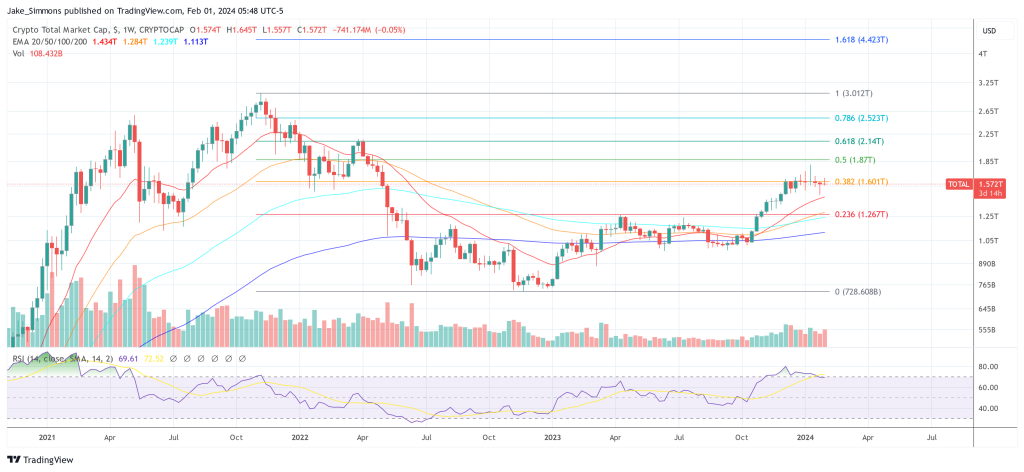Crypto Lawyer Exposes Fed’s Lead in Operation Chokepoint 2.0

[ad_1]
James “MetaLawMan” Murphy, a prominent crypto legal expert at Ludlow Street Advisors, has recently brought to light a contentious issue involving the United States Federal Reserve (Fed) and its alleged role in the “Operation Chokepoint 2.0,” targeting the cryptocurrency sector.
The Fed’s Role In Operation Chokepoint 2.0
Murphy’s scrutiny centers on the Federal Reserve’s handling of the master account application from Custodia Bank. A master account is critical for banks to access essential services like check clearing, wire transfers, and Automated Clearing House (ACH) payments. Federal law mandates that any federal or state-chartered depository institution should be granted such an account. As a Wyoming-chartered institution, Custodia Bank’s eligibility for a master account was clear.
The typical processing time for a master account is about 5-7 business days. However, Custodia Bank faced an inexplicable delay of 20 months, followed by a rejection eight months after they filed a lawsuit against the Fed. Murphy notes this pattern of delay and denial is strikingly similar to the SEC’s handling of Coinbase’s petition for rulemaking, suggesting a broader governmental resistance to cryptocurrency.
“The Fed’s response to Custodia’s application, especially when viewed in conjunction with similar regulatory actions, suggests a coordinated effort to limit the integration of digital assets into the traditional banking system,” Murphy asserts.
The Fed’s U-Turn On Crypto
During Custodia’s lawsuit, discovery processes revealed significant discrepancies between the assessments of the Kansas City Fed and the Federal Reserve in DC. The Kansas City Fed initially found Custodia’s capital to be adequate, its risk management practices strong, its liquidity risk low due to a fully reserved model, and its management team’s experience impressive and extensive.
However, these positive findings were starkly reversed in the report finalized by the DC Fed. Murphy details these alterations:
- Capital: Changed from “adequate” to a “lack of a robust capital requirement framework.”
- Risk Management: Modified from “strong” to “significant risk management gaps.”
- Liquidity: Despite Custodia’s fully reserved model, altered from “relatively low risk” to “insufficient liquidity risk management processes.”
- Management Experience: Revised from “impressive and extensive” to a “lack of collective depth of relevant banking experience.”
These changes were instrumental in the Fed’s decision to deny Custodia’s application. Murphy posits that this indicates a deliberate bias against cryptocurrency-related services.
“The revision of the Kansas City Fed’s findings by the DC Fed office raises serious concerns about the impartiality of the review process and appears to reflect an underlying bias against the crypto sector,” Murphy emphasizes.
Supporting Custodia’s case, the Blockchain Association and the Wyoming Attorney General filed amicus briefs in the bank’s motion for summary judgment. This legal battle, Murphy notes, is emblematic of the broader struggle for recognition and integration of the crypto industry within the traditional financial framework.
Caitlyn Long, CEO of Custodia, is commended by Murphy for her resilience and determination in this David versus Goliath fight. “Caitlyn Long’s fight extends beyond Custodia; it’s a fight for the rights of the entire cryptocurrency sector and the principle of financial freedom,” he says. For crypto, the hope remains that Long will win against Goliath.
At press time, the crypto market cap stood at $1.572 trillion.

Featured image created with DALL·E, chart from TradingView.com
[ad_2]
Source link
